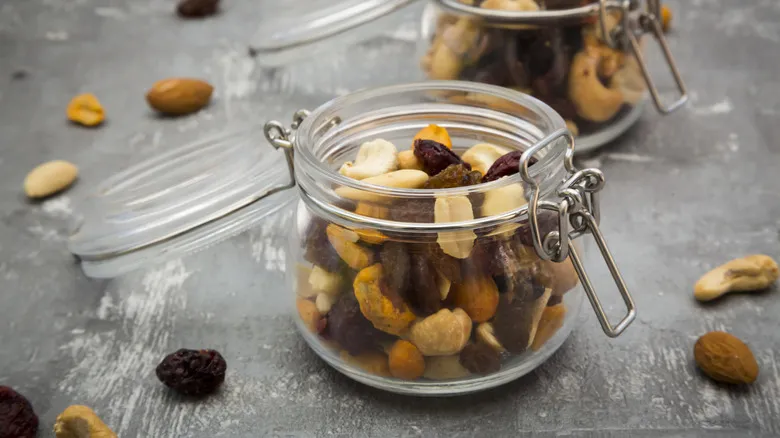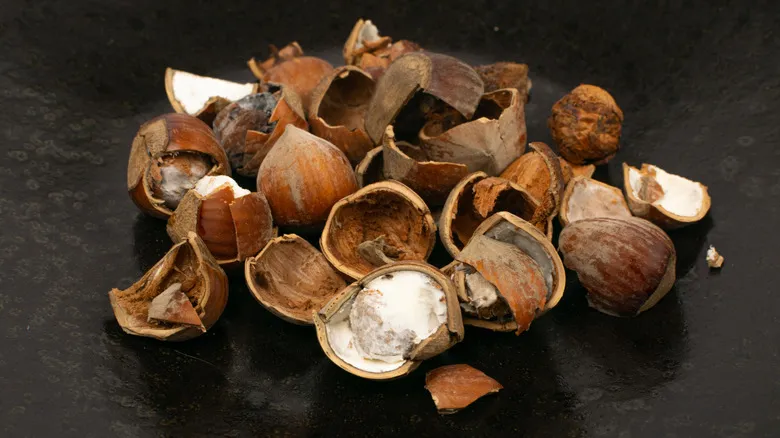The best way to store nuts

The best place to store these crunchy snacks is in the refrigerator. These cold storage units shield your nuts from the three main factors that accelerate spoilage: heat, oxygen, and light. Nuts are particularly vulnerable to these elements because of their high content of unsaturated fats. Often labeled as "healthy fats," these fatty acids are easily oxidized, which contributes to food degradation. The refrigerator provides a dark, cool environment that helps slow down this oxidation process, allowing your nuts to last up to six months, compared to about three months if kept at room temperature.
Alternatively, you can choose to store your nuts in the freezer, which can extend their shelf life to at least a year. However, keep in mind that shelled or chopped nuts may spoil more quickly than whole, in-shell nuts due to increased exposure to the aforementioned elements. Regardless of whether you decide to refrigerate or freeze them, it's best to transfer your nuts from their original packaging into an airtight container for optimal preservation.
Signs your nuts have gone bad

If your nuts aren't stored correctly or exceed their shelf life, they may unfortunately go rancid. It’s easy to recognize when this occurs; a quick sniff can save you from the unpleasant experience of tasting them. Rancid nuts will have a sour odor, reminiscent of nail polish or paint.
If there are no off-putting smells, you can choose to taste a small piece to assess their quality. This method will quickly indicate the condition of your nuts. Fresh nuts are typically crunchy and have a pleasant nutty flavor. In contrast, spoiled nuts will taste as sour as they smell, exhibiting bitterness and a loss of firmness. Any nuts that show these signs of spoilage should be discarded. Even using them in a recipe is not advisable, as they can negatively affect the overall flavor of your dish.
Recommended

What's The Best Cut Of Meat For Lamb Burgers?

What's The Best Temperature To Cook Lasagna At, Really?

The 6 Best Substitutes For Turmeric

Julienne Vs Baton Knife Cuts: What's The Difference?
Next up

